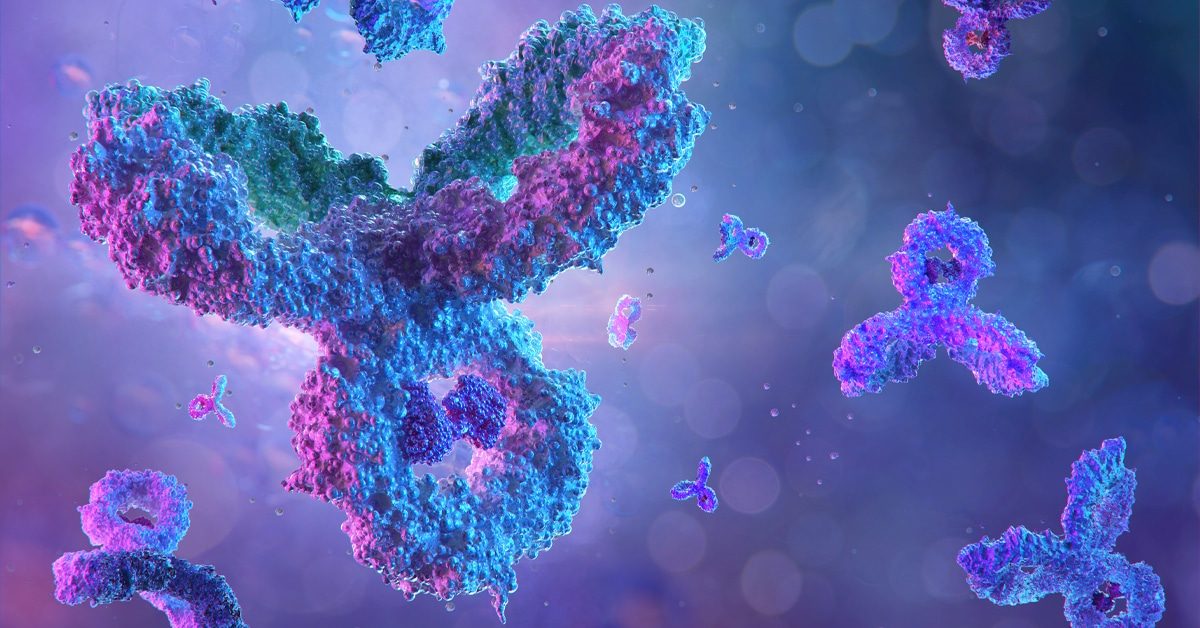
May 22, 2024 | News, Research, Study
In this article published by MS Australia, their research on antibodies shows promise that perhaps a simple blood test could predict MS one day.
Predictive disease markers allow early intervention
In recent years, antibodies against human (“self”) molecules have been identified in some autoimmune diseases, that are related to the disease process.
For example, in type 1 diabetes, antibodies that target insulin-producing cells and other proteins found in the pancreas are elevated.
In a non-diabetic person, the presence of these autoantibodies signals a higher risk of developing diabetes in the future.
This discovery has allowed the early treatment of children and adults at high risk of type 1 diabetes, successfully delaying disease development.
However, in multiple sclerosis (MS), a predictive or diagnostic autoantibody has not been reproducibly found.
Mass screening for the elusive MS autoantibodies
In a new study published in Nature Medicine, researchers from the University of California, San Francisco used a very large biobank of serum from over 10 million military personnel.
From this, 250 people with MS were selected, and the earliest available serum sample (taken around five years before the first clinical symptom of MS) was compared to another sample taken around one year after the first attack of MS.
These were also compared with a serum of people without MS matched for age, sex, race/ethnicity and date of serum collection.
The researchers tested these samples for the presence of antibodies reacting against small protein segments, called peptides. They also looked for a marker of nerve damage, called serum neurofilament light.
Autoantibodies identified in MS
Approximately 11% of people with MS had autoantibodies that target a specific human peptide segment.
These antibodies could be detected years before the clinical onset of MS and were associated with higher levels of the marker of nerve damage, both before and after MS diagnosis.
This suggests that the autoimmune process and associated nerve damage may commence years before MS diagnosis.
Validation of the MS autoantibodies
Researchers conducted further testing for the presence of these autoantibodies in an independent group of people.
In this second group, blood samples were collected around the time of the first clinical episode of what would (subsequently) be diagnosed as MS (n = 103).
Two different laboratory methods were used, and confirmed the presence of the autoantibodies, this time found in around 8% of people at the initial disease flare, in both serum and cerebrospinal fluid.
Two earlier smaller studies (2005, 2013) have also identified autoantibodies against similar protein segments in MS, providing additional support for this finding.
Importantly, by comparing with serum and CSF from other neurological diseases, these autoantibodies were shown to be highly specific for MS cases.
Clues to autoimmune mechanisms
The peptide segment targeted by the MS autoantibodies is found in a variety of human proteins, as well as several infectious agents, including the Epstein-Barr virus.
This supports the possibility that the autoimmune process in MS might initially be triggered by an immune response to infection, that coincidentally also recognises human proteins.
This phenomenon is known as ‘molecular mimicry” and is a proposed mechanism for the onset of autoimmunity more generally.
However, the fact that these infections are so common in the general population suggests that other factors, such as genetics, past exposures, and timing of infection, could also play a role in MS development.
What does this mean for people with MS?
Recent analyses of health records have found an increased incidence of symptoms such as fatigue, headache, anxiety, depression, and cognitive problems prior to MS diagnosis.
This suggests that MS pathology may begin years before the clinical onset of MS.
The discovery in this study of MS-specific autoantibodies present years before diagnosis raises the possibility that they could ultimately be used for early detection of MS, and early intervention to delay or prevent disease progression.
While these findings are promising, they currently apply to only about 10% of people with MS. The techniques used in this research might miss antibodies that react to the full 3D shape of proteins, suggesting that more as-yet-undiscovered antibodies could be relevant.
We look forward to the results of ongoing work in this area towards early detection, delay and, ultimately, prevention of MS.